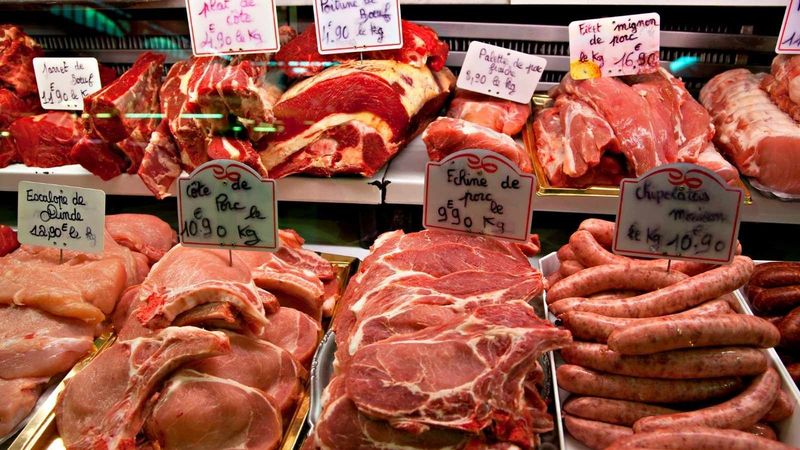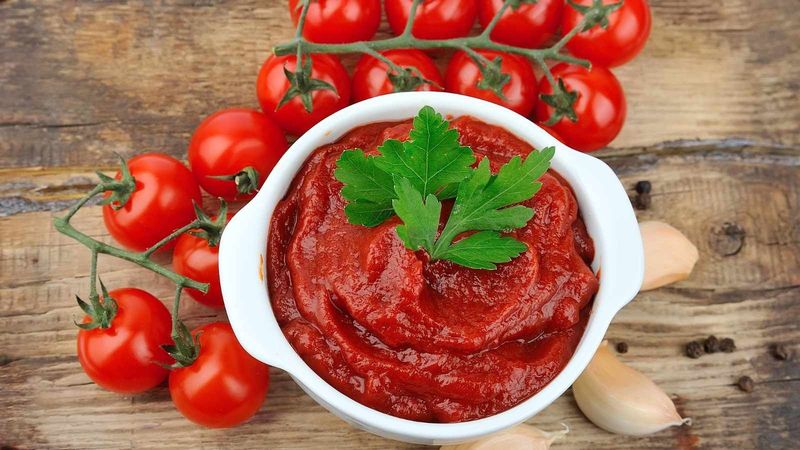15 Foods to Never Eat When You Feel Sick
The foods you consume while ill can significantly impact your recovery, as some foods and beverages can exacerbate symptoms and impede the healing process. In this article, we will highlight 15 foods that should be avoided when sick to ensure that your dietary choices promote, rather than hinder, your path to wellness.
Dairy Products

Dairy products like milk, cheese, and yogurt can be complicated for the body to digest when sick. These foods are high in lactose, which can cause bloating, gas, and diarrhea – all of which can make you feel worse when already under the weather.
Spicy Foods

Consuming spicy foods can potentially aggravate an already sensitive stomach, leading to an exacerbation of digestive issues or discomfort. Choose milder food options that are easier on the stomach, particularly when experiencing illness or digestive distress.
Citrus Fruits

Although citrus fruits are widely recognized as a great source of vitamin C, consuming them in large quantities while sick can have potential drawbacks. The high acidity of citrus fruits can be harsh and irritate the throat and digestive system, potentially worsening existing symptoms.
Fried or Greasy Foods

Consuming greasy and fried foods, like deep-fried chicken or French fries, can lead to digestive discomfort. These foods are high in unhealthy fats and can be more challenging for the body to break down, resulting in feelings of heaviness and bloating. On the other hand, opting for lighter and more easily digestible alternatives, like grilled chicken or steamed vegetables, can promote better overall digestive health and well-being.
Sugary Snacks

Sugary snacks like candy and cookies should be avoided when sick. These foods are high in refined sugars, suppressing the immune system and making it harder for the body to fight illness. Instead, opt for healthier snack options like fresh fruit or unsalted nuts.
Caffeinated Beverages

While coffee may provide a temporary energy boost, consuming caffeine when sick can worsen symptoms. Caffeine is known to dehydrate the body and can also interfere with sleep – an essential component for recovering from illness.
Alcohol

Consuming alcohol can lead to dehydration as it has diuretic effects on the body. Alcohol may also interact with some medications, potentially causing adverse effects. Abstain from consuming alcoholic beverages until you have fully recovered to ensure optimal health and well-being.
Processed Foods

Processed foods, like chips, frozen meals, and deli meats, are often high in sodium and artificial additives that can be harmful when sick. These ingredients may cause bloating, water retention, and digestive discomfort, making them best avoided while recovering from an illness.
Heavy Red Meats

Red meats, particularly those heavily processed, can be difficult for the body to digest. This difficulty can lead to lethargy and discomfort, hindering your recovery process. Instead, opt for lean protein sources like chicken or fish.
Salty Foods

Like processed foods, salty foods can lead to bloating and water retention. This problem can be incredibly uncomfortable when dealing with a cold or flu, as it may worsen symptoms like congestion and headaches. When sick, limit your intake of salty snacks like chips, crackers, and pretzels.
Excessive Fiber

Fiber is good for digestion, but be careful with how much you consume if you have a sensitive stomach. Too much fiber can make you uncomfortable, so limit high-fiber foods until your stomach settles and you feel better. This gives your digestive system time to adjust and find a balance.
Cruciferous Vegetables

Vegetables like broccoli, cauliflower, and cabbage are high in fiber and can cause gas and bloating when consumed in large quantities. If you’re feeling under the weather, avoid or limit these vegetables until your digestive system fully recovers.
Highly Acidic Foods

Highly acidic foods, like tomatoes and vinegar, have the potential to irritate a stomach that is already sensitive. Choose low-acid alternatives that are more gentle on the stomach and less likely to cause discomfort or aggravation.
Energy Drinks

Energy drinks are often high in caffeine, sugar, and artificial additives, which can be problematic when feeling sick. The combination of these ingredients can lead to dehydration, increased heart rate, and blood pressure – all of which may worsen existing symptoms.
Raw or Undercooked Eggs

Raw or undercooked eggs can contain harmful bacteria, such as Salmonella, which can be especially dangerous when the immune system is compromised. Ensure you cook your eggs thoroughly and avoid consuming them raw, particularly when recovering from an illness.
